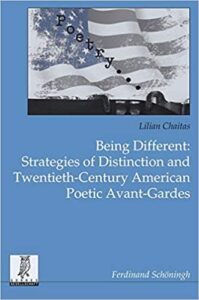
In Questions of Poetics, I wrote that, in contrast to André Breton’s motto “I seek the gold of time,” what I wanted is more like the “currency of history.” All this bears on the question of value, of course. Breton’s wish to alchemically transform desire into substance is inscribed on his tombstone, where it is still doing its work. In another present, I see history as a gold mine of another sort, making meanings that circulate and become value. Such is the task of the poet, broadly put, writing works that will be circulated until they find their meaning and use. It is also the task of the literary historian, to establish the contexts, motives, situations in which such meaning may be made. There needs to be more literary history, not of the old, positive kind but one addressed to the making of value in poetics as history. This could begin with the work of an archive, as an assembly line of parts for meaning making—eventually tending toward a form of comprehension, like the work of literary history depicted above.
Lilian Chaitas’s Being Different: Strategies of Distinction and Twentieth-Century Poetic Avant-Gardes contains, in my reading-in-progress, the best account of the debates on early Language writing I know. Published in 2017, it is a meticulously detailed, 435-pp. account of American poetic avant-gardes from the New Americans to Language writing, drawing its theory from Renato Poggioli and Pierre Bourdieu, with a glance back to Alan Golding’s From Outlaw to Classic (1995). Originally it was a 2013 dissertation written to German standards under the direction of Bernd Engler at the University of Tübingen, where not coincidentally I was hosted as a Fulbright scholar in 2005 and staged a raucous conference on Authorship and the Turn to Language that December—a currency of history itself. But I did not know the work existed until a section of the last chapter, retelling the 1978 Duncan/Watten cataclysm in microscopic detail, turned up as a pdf on Dispatches from the Poetry Wars. I finally located a copy on Amazon.de, which arrived last month from a warehouse in Nijmegan, Netherlands. The last chapter, “Language Poetry in the 1970s and 1980s,” is what concerns me here—and which so impressed me that I provide it in three separate pdfs (here and below), one for each of the major sections. These address, in turn, “The So-Called ‘Language’ School”; “The Duncan/Watten ‘debat/cl/e'”; and “Stalin as Linguist.” … More











